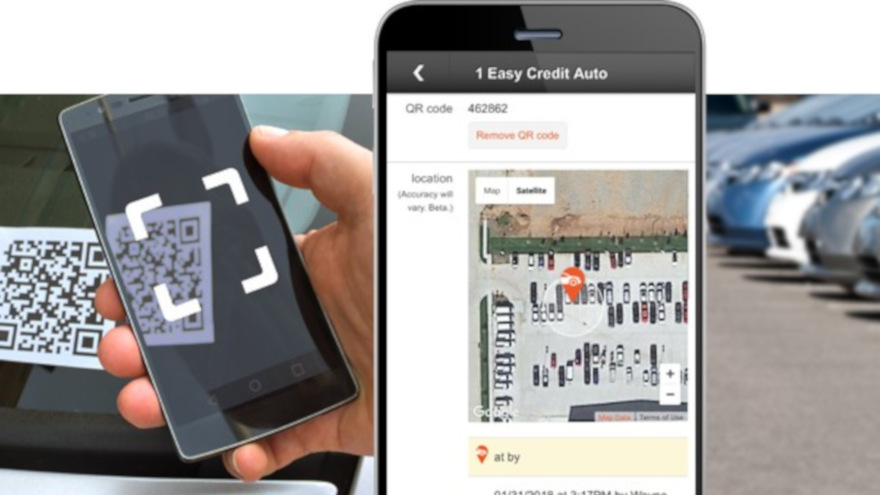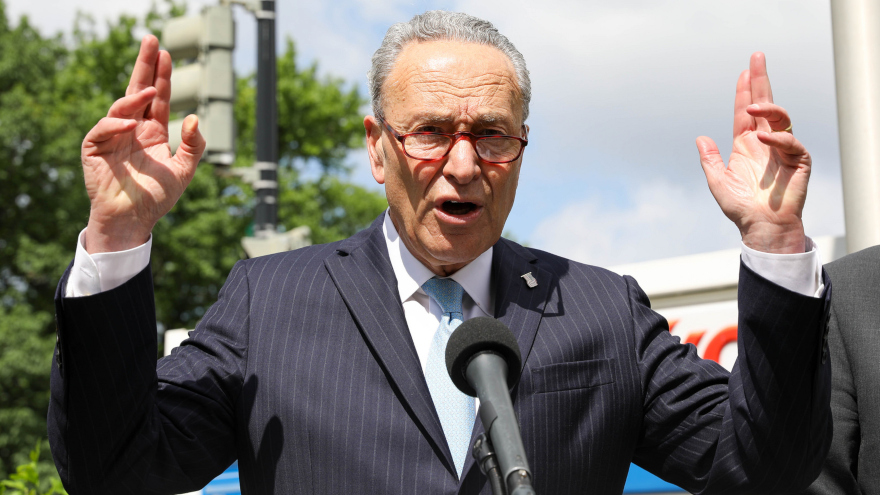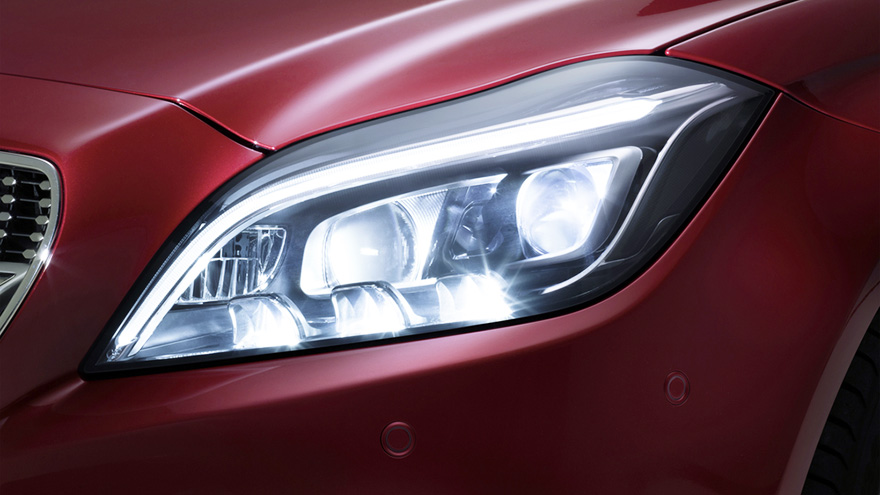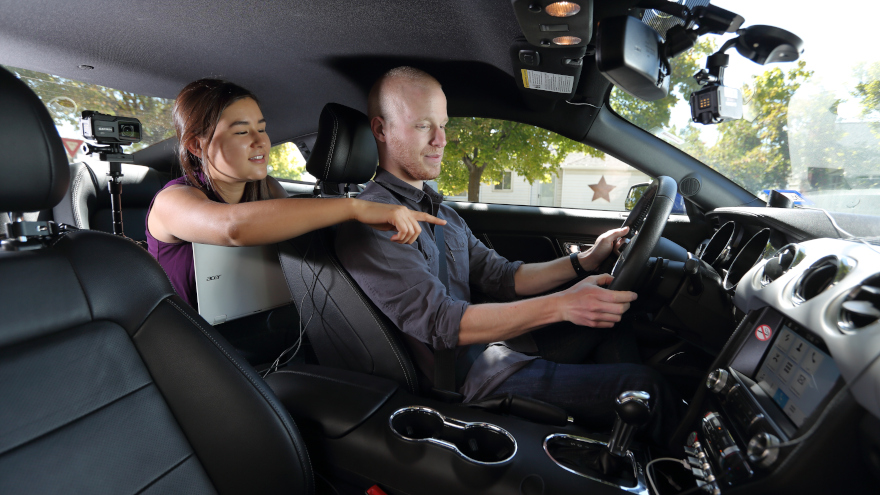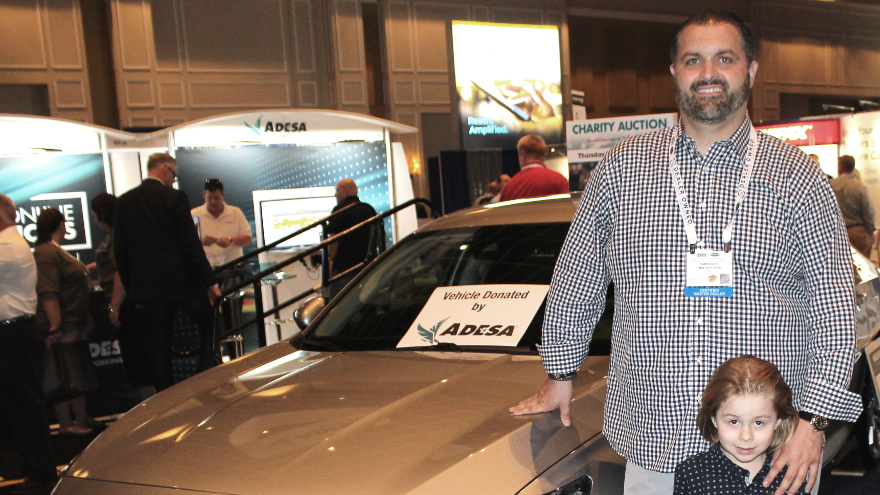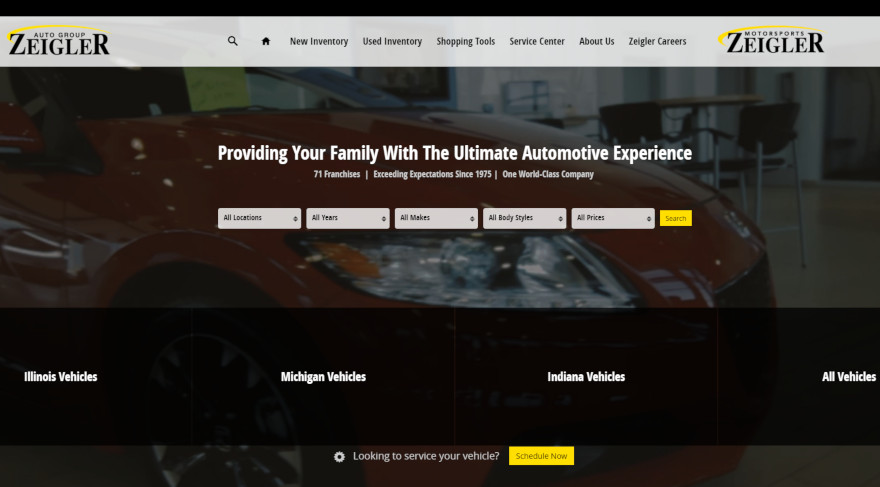Camacho Auto Sales, an independent auto dealership with three used car operations serving the Palmdale and Lancaster, Calif., markets outside Los Angeles, reconditions 220 vehicles a month to keep its lots filled with fresh inventory that sells faster.
Camacho’s used car superstore at the Palmdale Auto Mall does reconditioning for the operation.
Vehicles sent out to sublets for some phases of that work often were forgotten or otherwise delayed. That lost time cost Camacho Auto Sales considerable financial loss.
Second-generation operator Gus Camacho says he’s now solved that problem — one that troubles many independent auto dealers, losing control and track of used-car inventory.
“Things were a mess,” says Camacho, who also owns the nearby Camacho Mitsubishi.
“We are talking here about thousands and thousands of dollars,” adds Camacho, who stepped into his father’s footsteps when the elder Camacho retired in 1996.
Anything that delays cars’ speed from acquisition to their sale erodes vehicle sales margin. Dealers have the most control over this time to line (T2L) during vehicle reconditioning. “Delay getting cars ready to be sold increases floorplan expense, ties up money in products not available for sale, and contributes to vehicle depreciation,” Camacho notes.
The core of this problem is lack of visibility. Without T2L recon workflow software to provide real-time insight into recon flow and sublet movements, inventory problems aren’t noticed until month-end inventory. Camacho says he rarely knew how long cars were at sublets or otherwise delayed unless he checked when repair orders on those vehicles were opened, too late to address the real problem.
Spot-on vehicle tracking
Rapid Recon’s step-tracking, accountability, and location tools keep cars moving through reconditioning.
“With Rapid Recon, we know exactly where our cars are — and how long a sublet is taking to get them back to us. If that time is unacceptable, we now have the data to discuss that problem with the sublet in objective ways,” Camacho notes.
Rapid Recon software automatically organizes the many steps, tasks, and people to recondition used cars quickly so dealers can generate more profit from them. T2L automatic vehicle tracking and accountability provide real-time inventory location via QR Code and mobile tools.
The Camacho team routinely checks this software as an app on their mobile device. Notes appended to vehicle status also inform about where the vehicle is to go next in the recon process, who is responsible for those next steps, and time when vehicle will be sale-ready.
Dealers using Rapid Recon streamline recon processes, eliminate duplicate or otherwise wasteful steps and procedures, and typically reduce T2L from as much as two weeks to five to seven days or fewer. Every 2.5 days eliminated from T2L translates into one additional inventory turn, which means more used-car profit.
Even with all of the clashes happening on Capitol Hill nowadays, U.S. Senate Minority Leader Charles Schumer over the weekend delivered a letter to the Federal Trade Commission to outline his significant concerns about what the New York lawmaker dubbed, “hurricane cars.”
As a storm currently brews off of the North Carolina coast and is predicted to drift out to sea, Schumer fears scores of vehicles damaged during previous hurricanes currently are in dealership inventory. Therefore, the powerful Senator wants the FTC to increase the regulatory capability of the Used Car Rule already in place in an effort to keep flooded vehicles from being retailed.
“While the FTC has been sounding the alarm on ‘hurricane cars,’ consumers are still at risk of being duped and burdened by a financial road of ruin if they unknowingly buy one,” Schumer said in a news release distributed on Sunday. “That’s why the FTC needs to drive forward with more than a consumer warning and hit the gas on a plan that uses the ‘Used Car Rule’ already on the books to ensure that the sticker slapped on every used car in a lot details a robust ‘flood check.’
“In many cases, ethical used car dealers are already performing this kind of check anyway, as part of the inspection process, and all we are saying today is that disclosure of this information should be one of the rules before these cars are able to hit the road,” he continued.
“Whether you’re a New Yorker looking to buy in New York, or a New Yorker looking on the internet for a car parked in another state, the risk of winding up in the driver’s seat of a ‘hurricane car’ is a headache at the least, but a real danger, too,” Schumer went on to say.
Schumer cited estimates of more than 600,000 vehicles being damaged during last year’s hurricane season, including the record-setting flooding in Texas stemming from Hurricane Harvey. Schumer said that in many cases “a ‘hurricane car’ can be ‘cleaned up’ for as little as $2,000 and then sold to an unsuspecting consumer.”
So the Senate Minority Leader made his case to Federal Trade Commission chairman Joseph Simmons in a five-paragraph letter.
“Given the uncertainty surrounding the quality of so many of these vehicles ravaged by flooding during past storms and new industry data showing used car sales are surging to their highest levels in five years, I respectively urge you to reevaluate the Used Car Rule and consider incorporating a flood check as part of the required disclosures included in the Buyers Guide offered on used cars, so that consumers know up-front when cars may have been impact by serious weather elements,” Schumer wrote.
“Incorporating a flood check is the right type of sound policy that could help consumers make educated vehicle purchases, and possibly save lives,” he added.
When the National Automobile Dealers Association board of directors met last month in New York, developments in Washington, D.C., once again dominated the conversation among directors from all over the country. No surprise there.
But what was surprising was the specific area of policy currently under consideration in Washington. I’m referring, of course, to the possibility of tariffs of as much as 25 percent on potentially all imported vehicles and automotive parts.
Our directors had a number of questions before we even got to specific concerns. How did we get here so quickly? How did we go from tariffs on imported steel and aluminum from certain countries to a potential across-the-board tariff on imported vehicles? How will the process of the Department of Commerce’s “national security” investigation unfold?
Perhaps most importantly, how can a president who’s done so much good for our industry and the nation’s economy – through a historic tax cut and tax policies allowing dealerships to invest more in their businesses and their employees – now be proposing something that could raise new vehicle prices by thousands of dollars?
My view is that you have to look beyond the tariffs themselves in order to understand what is unfolding in Washington. And in that respect, I believe President Trump is rightly concerned with three things. The first is the loss of manufacturing jobs in the U.S. over the past 40 years. The second is the U.S. trade deficit, which was a staggering $568 billion in 2017. And the third is an unlevel playing field when it comes to international trade that puts the U.S. at a significant disadvantage in many areas, even with our strongest trading partners.
The president wants to negotiate better trade deals for the U.S., American workers and American consumers. He’s right to be concerned about the trade deficit. But the tactic of new and steep tariffs on auto and auto parts imports, if implemented broadly, would hurt the auto industry and our customers and have severe unintended consequences.
The first job for dealers and our partners on the manufacturing and supply side is to educate the administration on the complexity and interconnectedness of the auto industry. The notion that there are truly “domestic” and “international” brands simply isn’t true any longer. Manufacturers are globally integrated, and their supply chains routinely span international boundaries. In fact, many international brand vehicles are assembled in the U.S. with mostly American-made parts, while some domestic brands have models that are manufactured abroad and imported here. Consequently, some domestic brands could get hit harder with tariffs than some international brands.
More to the point, though, it’s our customers who would feel the most dramatic effect of broad import tariffs through a combination of higher prices and fewer choices, as all imported vehicles and even U.S. built vehicles get dramatically more expensive, and some imported models are no longer offered for sale in the U.S. altogether.
Even from a distance, it’s easy to see that broad-based tariffs on vehicles and auto parts would result in seismic unintended consequences. So, as we have done so many times before, NADA is rolling up its sleeves and getting to work. We are hard at work educating the administration about the reality of the auto industry, and we are urging Congress to exercise oversight on this process and identify the potential economic impacts of any new tariffs. We are working on an independent economic impact study designed to measure the potential impact that tariffs would have on dealerships and their American customers, and we will present the results of that study to the Department of Commerce through our testimony at a July public hearing.
And we will be clear throughout: NADA is not opposed at all to the president’s goals of addressing unfair trade practices and preserving American jobs. But we must find the right tools for accomplishing those goals. Overbroad tariffs on autos and auto parts are the wrong tools because they will raise prices on new cars and trucks and jeopardize affordability and choice for millions of our customers.
Lutz is the 2018 NADA chairman and president of Extreme Chrysler-Dodge-Jeep-Ram in Jackson, Mich. This commentary originally appeared on NADA’s website here.
June was a busy month for Scott Fink, the president and chief executive officer of Hyundai of New Port Richey — one of Hyundai’s top-selling certified pre-owned dealers and Auto Remarketing’s 2014 CPO Dealer of the Year.
Not only is Fink ensuring that certified metal continues to roll over the curb, but he is also chairman of the board of directors for Hyundai Hope On Wheels, the automaker’s philanthropic arm that gave out seven of its 21 planned $100,000 Hyundai Impact Awards. The honors and funds are given to pediatric oncology departments at select children’s hospitals nationwide.
“For 20 years, Hyundai and its dealers have dedicated their mission to saving lives and creating hope through Hyundai Hope On Wheels. We are proud of the research work that has been done and the lives that have been saved by the dedicated research community,” said Fink, whose store turned 1,072 certified Hyundai vehicles last year to rank second nationally, according to sales data shared by the automaker.
“We know that for too many pediatric cancers there remain little progress and few good treatment options for children. That’s why we provided these large awards to some of the finest research-scientists, who are finding new treatment approaches and better ideas to finding more cures for the disease,” Fink continued.
“We believe this is a fight we can win, and we are committed to doing whatever it takes to achieve that goal,” he went on to say.
In June alone, $100,000 Hyundai Impact Awards were distributed to:
— UCLA Mattel Children’s Hospital in Los Angeles
— Vannie E. Cook Jr. Children's Cancer and Hematology Clinic in McAllen, Texas
— Mary Bridge Children’s Hospital & Health Center in Tacoma, Wash.
— University of Wisconsin – American Family Children's Hospital in Madison, Wisc.
— Phoenix Children’s Hospital
— Children’s of Alabama and UAB in Birmingham, Ala.
— Monroe Carell Jr. Children’s Hospital at Vanderbilt in Nashville, Tenn.
And the pace didn’t slow to start July, as this week another $100,000 Hyundai Impact Award went to UPMC Children’s Hospital in Pittsburgh.
“Throughout the country, talented doctors are working tirelessly to help kids fight cancer by conducting research or providing bedside care,” Fink said. “Our goal at Hope On Wheels is to provide these doctors with the grant funds they need to perform their lifesaving work.”
Begun in 1998 by Hyundai and its U.S. dealers, Hyundai Hope On Wheels is one of the longest continuously running initiatives in the auto industry and is dedicated to helping kids fight cancer. The program was started in the Boston area and quickly traveled to support children’s hospitals throughout the U.S. with research grants to help find cures and to improve care for children fighting cancer.
“A key priority for Hyundai dealers is to give back to society and to make sure children have the best possible future for success. We believe that future should be in a world that is free from pediatric cancer,” Fink said.
“We know that progress has been made in finding cures for pediatric cancer. With HHOW grants over the past 20 years, innovative therapies and new treatments have been developed,” he continued.
“The Hyundai dealers' across the nation are proud to support this important cause. But our work is not over, and you can count on the Hyundai dealers to remain committed to this fight for as long as it takes,” Fink went on to say.
For more information about Hyundai Hope On Wheels and to view a complete list of grant winners, visit HyundaiHopeOnWheels.org/research.
As stores got Fourth of July sales campaigns into full swing, the National Automobile Dealers Association delivered comments to the U.S. Department of Commerce in an effort to make it clear that franchised dealers oppose the imposition of new tariffs or quotas on imported vehicles or parts.
In comments sent to the federal agency ahead of Independence Day, NADA said that the association fears that any new tariffs or quotas will result in higher vehicle prices and reduced choice for Americans ready to purchase an automobile.
NADA reiterated that it fully appreciates the administration’s trade goals, including:
— Enhancing the domestic production, sale, and export of American-made vehicles and automotive parts
— Curbing unfair foreign trade practices involving automobiles and automotive parts
— Reducing America’s trade deficits and increasing domestic jobs for Americans.
But the association stressed that broad-based tariffs will result in significant negative impacts on NADA’s 100-percent American automobile dealers and the American working families and American businesses who buy automobiles and automotive parts from them. NADA pinpointed these impacts include higher vehicle prices, as well as a reduction in the number, or even the elimination, of imported vehicle models, thereby reducing competition and customer choice, and ultimately depressing demand.
“The president is rightfully concerned about trade imbalances and manufacturing jobs in the United States,” NADA president and chief executive Peter Welch said. “But automobile production today is so deeply integrated across international boundaries that virtually all cars and trucks, domestic and international, have foreign components even if they are assembled in the United States.
“And a tariff, depending on how it is implemented, could raise prices dramatically for customers and threaten auto industry jobs at home. We look forward to working with the administration to find solutions that don’t dramatically increase prices or limit choices for our customers,” Welch added.
NADA’s comments were filed with the Commerce Department in response to proceedings being conducted under section 232 of the Trade Expansion Act of 1962 intended to determine the effects on the national security of imported automobiles, including cars, SUVs, vans and light trucks and of imported automotive parts.
Dealers can read NADA’s full submission here.
New research from AAA could make the late-model vehicles in your inventory equipped with Apple CarPlay and Google’s Android Auto even more appealing to your dealership’s potential buyers, especially the purchasers who rate safety as one of the main criteria during the shopping process.
According to a research project orchestrated by the AAA Foundation for Traffic Safety, Apple CarPlay and Google’s Android Auto are less distracting to drivers when compared to built-in vehicle infotainment systems designed by automakers.
While AAA acknowledged many of today’s infotainment systems create potentially unsafe levels of distraction by allowing drivers to perform complex tasks like programming navigation or sending a text, researchers discovered CarPlay and Android Auto were 24 percent (5 seconds) faster on average than the vehicle’s native system when making a call and 31 percent (15 seconds) faster when programming navigation.
Experts said this difference is critical, as drivers who take their eyes off the road for more than two seconds double their risk of a crash. AAA is encouraged by these findings as the organization said they indicate that popular infotainment systems can be designed in a way that is less distracting.
Distracted driving is responsible for more than 390,000 injuries and 3,500 deaths every year, according to AAA
“Google and Apple are proving that it is possible to reduce the level of demand in-vehicle infotainment technology places on drivers,” said David Yang, executive director of the AAA Foundation for Traffic Safety.
“While improvements are necessary before any of the systems can be considered safe to use while driving, this research shows that smartphone-based software has the potential to offer a simpler, more familiar design that is less confusing to drivers, and therefore less demanding,” Yang continued.
The AAA Foundation for Traffic Safety teamed with researchers from the University of Utah to evaluate five vehicles to determine the amount of visual and mental demand placed on drivers by CarPlay, Android Auto and each vehicle’s native infotainment system. The specific units involved in the study included”
• 2017 Honda Ridgeline RTL-E (HondaLink)
• 2017 Ford Mustang GT (SYNC 3)
• 2018 Chevrolet Silverado LT (MyLink)
• 2018 Kia Optima (UVO)
• 2018 Ram 1500 Laramie (Uconnect)
While CarPlay and Android Auto can still create potentially unsafe levels of distraction and should not be used to perform complex tasks when behind the wheel, researchers determined they decrease the demand placed on drivers compared to similar technologies offered by automakers.
Researchers also found that CarPlay and Android Auto did not differ significantly from one another in the level of overall demand. A rating scale was used to measure the visual (eyes-off-road) demand, cognitive (mental) demand, and the time it took drivers to complete a task using the systems. The scale ranged from low to very high levels of demand.
A low level of demand equates to listening to the radio or an audiobook, while very high demand equates to an industry standard that produces demand similar to balancing a checkbook while driving.
Both CarPlay and Android Auto generated an overall moderate level of demand while the native vehicle systems created very high levels of demand for drivers. AAA recommends that industry strive to design in-vehicle technology systems that do not exceed a low level of demand.
“Automakers are experts at building safer cars, but Google and Apple are more skilled at building safer vehicle infotainment technology,” AAA president and chief executive officer Marshall Doney said. “By leveraging their strengths, the two industries must work together to significantly improve the design, functionality and safety of these technologies.”
AAA cautions that not all vehicles are created equal when examining the overall performance of CarPlay and Android Auto.
Researchers noticed the interface design of some vehicles’ native systems resulted in additional menus and text on vehicle touchscreen displays, which increases the overall workload on drivers. Each vehicle’s system also influenced what features were locked out while the vehicle was in motion when using Android Auto and CarPlay.
For example, AAA found that some vehicles allowed drivers to access their entire contact list when calling or texting, while others limited the number of contacts shown or completely blocked access — resulting in the smartphone-based systems performing differently across various vehicle models.
AAA urged drivers not to use in-vehicle infotainment technology to perform non-driving related tasks when behind the wheel to avoid driving while distracted. Even with Apple CarPlay and Android Auto requiring less overall demand and time to complete a task, drivers still took up to 33 seconds to complete a navigation task compared to 48 seconds for native systems.
At 25 mph, researchers calculated that drivers can travel the length of three football fields during this time.
“Drivers must use common sense when it comes to technology inside the vehicle. Just because it is available, doesn’t make it safe to use,” said Jake Nelson, AAA director of traffic safety and advocacy.
“Smartphone companies and automakers must collaborate to reduce the potential for distraction that technology places on drivers. The airline industry doesn’t compete on safety, and neither should automakers. Motorists deserve better,” Nelson went on to say.
Nelson added that locking out high-demand functions such as programming navigation and text messaging can significantly reduce the level of demand created by in-vehicle infotainment technology; a step recommended by the National Highway Traffic Safety Administration.
Since the vehicle’s software influences which features are locked out, AAA emphasized that it is important that automakers and software designers work together to improve the safety of in-vehicle infotainment technology.
“AAA is sharing this new research with automakers and system designers to help advance the dialogue about ways to improve the functionality and design of new infotainment systems and the demand they place on drivers,” Doney said.
“By working together to leverage the design benefits of CarPlay and Android Auto and addressing the issues that prevent the software from effectively interacting with a vehicle’s system, automakers and smartphone companies can improve the driving experience and limit distraction on the road,” Doney went on to say.
Expanding on research released in October 2017, AAA also evaluated distraction levels caused by built-in (native) infotainment systems in 10 other 2017 and 2018 model-year vehicles. A total of 76 drivers ages 21 to 35 participated in the study of these additional vehicles.
Research found that none of the 10 vehicle infotainment systems produced low demand, while six systems generated high or very high levels of demand on drivers.
The complete report can be found here.
Not only did the Haus Auto Group owner from Canfield, Ohio place the winning bid for charity on a 2018 Honda Accord at the 72nd Annual NIADA Convention and Expo, Chris Haus was also honored as Ohio's State Quality Dealer award winner last week.
While Haus was one of 13 nominees in the running for NIADA's highest dealer honor, during a ceremony at the Rosen Shingle Creek Resort, Randy Crump, president of Friendly Auto Sales in Jasper, Ala., was named the 2018 National Quality Dealer of the Year last week.
At the charity sale hosted by ADESA on the final day of the convention, NIADA announced that Haus bid $26,500 to take home a silver a 2018 Honda Accord with just 1,188 miles on the odometer.
According to the company, all proceeds from the sale went to the NIADA Foundation. The foundation coordinates charitable giving and provides scholarships to college-bound students across the country for NIADA.
In just six years, charity auctions sponsored by ADESA and other KAR business units at the NIADA Convention and Expo have raised a total of $151,700 for the NIADA Foundation.
Last year, Michigan dealer Jeff Baker bid $28,000 for charity to take home a 2016 Nissan Frontier SV pickup.
“You don't get to buy cars for charity often,” Haus said. “So, when it happens, it's the right thing to do.”
Haus’ dealership works with charities such as Special Olympics and the Curing Retinal Blindness Foundation, according to the NIADA.
“For us, it's good to be part of this charitable cause,” he said. “It really ties in with what we do day-to-day.”
With a purchase set to close Monday, Zeigler Automotive Group has acquired its fourth Ford store and 26th dealership overall.
The Midwestern dealership group said Friday it has officially bought McCarthy Ford of North Riverside from the LeFevour family, which purchased the store in February 2017.
The dealership had been Joe Rizza Ford for nearly 40 years.
Its new name will be Zeigler Ford of North Riverside.
The companies made the deal in May.
The closing date is Monday and the store is scheduled to reopen on Tuesday as part of the Zeigler group.
Privately owned Zeigler Automotive Group was founded in 1975, and has 71 franchises and 26 locations throughout Illinois, Indiana and Michigan.
“We feel that this store has great potential. With everything we know about this business and with the community's support, we can really make this a successful store,” Aaron Zeigler, the group’s president, said in a news release.
McCarthy Ford’s current staff will be retained, Zeigler said. However, Val Kholodovsky will come in as general manager.
Independent dealers from Alabama and Maryland received two of the top national honors handed out by the National Independent Automobile Dealers Association.
During NIADA’s 72nd annual Convention and Expo in Orlando, Fla., Randy Crump, president of Friendly Auto Sales in Jasper, Ala., was named the 2018 National Quality Dealer of the Year.
Krietz Auto, a family business that has quickly grown into one of the strongest operations in the NIADA Certified Pre-Owned program, has been named NIADA CPO Dealer of the Year.
The accolades were all part of the event that drew the most attendees in the history of the conference.
In a ceremony webcast live from the Rosen Shingle Creek Resort on NIADA.TV, Crump was chosen from the 13 State Quality Dealers nominated for highest honor given among NIADA’s dealer members. He is the seventh NQD from Alabama, tying Texas for the most from any state.
NIADA National Quality Dealer candidates are judged on a variety of factors, including contributions to the automotive industry, the association and community involvement.
This year’s winner was chosen by a selection committee comprised of some of the most distinguished names in the used-vehicle industry. The committee included:
— AFC chief operating officer Joe Keadle
— NextGear Capital senior vice president of operations Randy Dohse
— NADA senior vice president and chief operating officer Mike Stanton
— Black Book vice president and North American auction director Tim West
— ADESA president John Hammer
— NIADA Region IV vice president and 2013 National Quality Dealer Joe McCloskey of McCloskey Motors
— Elgie Bright, chairman of the Automotive Marketing Department at Northwood University
In accepting the award, Crump credited his father, John, whom he calls “Wolf,” for much of his success.
“I’m a second-generation car dealer,” Randy Crump said, “and he’s given me the knowledge, the opportunity and the work ethic that’s required in today’s business. I can’t thank you enough, Wolf.”
Crump, 52, is a true auto industry lifer, having begun his career at age 7, sweeping floors and keeping the store clean for 25 cents an hour at his father’s dealership, John Crump Toyota.
He wound up working in the dealership’s service department until high school, detailing cars and doing oil changes, and eventually served in every one of the operation’s departments through his high school’s co-op program. At 16, he sold his first vehicle, a 1981 Toyota Tercel.
After earning a degree in business management from Northwood University in 1990, Crump again went to work for his father as used-car manager of a Mazda store, igniting a passion for the used-vehicle business.
That passion helped fuel his decision to go out on his own. In 1999, he opened Friendly Auto Sales, a buy-here, pay-here operation that consisted of three people — Crump, a secretary and a car washer.
“I did all the buying and selling myself,” he recalled.
That’s no longer the case. In 2006, he was able to add a collector and a salesman. In 2008, he replaced his original building with a new facility that included a detail shop, which was later joined by a repair shop.
These days, Friendly Auto Sales has a staff of seven, including two certified technicians, a one-acre lot, average annual sales of more than $2.2 million and a town filled with loyal customers, many of whom said the staff treats them “like family.”
Crump said that family atmosphere fits his hometown of Jasper, population 14,000.
“I like being from a small town,” he said. “To me, the best thing about this community is the mom and pop-type businesses that are established here.”
As the owner of one of those businesses, Crump is deeply embedded in his community through involvement in his church and organizations like the local Boy Scout council and the Salvation Army, working with area schools on various initiatives, including a job-shadowing program, volunteer work and charitable efforts such as providing rooms for the Homeless Coalition, donating vehicles to charitable organizations and contributing to help a junior high school build a baseball field.
“I simply feel it is extremely important to give back to the community,” Crump said. “When I was in middle school, one of my reading assignments was The Diary of Anne Frank. Something she said in her diary has always stuck with me: ‘No one has ever become poor from giving.’
“I have tried to emulate that philosophy and make it one of my guiding principles to live by.”
In keeping with that philosophy, NextGear Capital donated an emergency response vehicle in Crump’s name to his local chapter of the American Red Cross.
This will be the sixth emergency vehicle donated to the American Red Cross through Cox Automotive. Since 2015, the company has donated more than $750,000 to the American Red Cross to support disaster relief. The vehicle will be transported to the winner’s dealership and officially donated to the local American Red Cross chapter.
“Randy and his dealership exemplify what it means to be a committed community partner and their values align with those of Cox Automotive,” Dohse said. “We recognize the dedication and support they provide within their community and hope to bolster their efforts with the donation of this important, live-saving tool to the American Red Cross.”
Each year, the American Red Cross responds to nearly 64,000 disasters around the country— from home fires and tornadoes to severe winter weather, hurricanes and floods. Members of the Disaster Responder Program, like Cox Automotive, invest in disaster relief readiness to ensure supplies, shelters and emergency vehicles are ready to respond when disaster strikes.
Crump is a member of the Alabama IADA board of directors, as well as a member of an NIADA Dealer 20 Group.
Krietz Auto named NIADA CPO Dealer of the Year
Krietz Auto, a dealership in Frederick, Md., run by Charlie and Kim Krietz and their sons, Charles and Cory, became the second winner in the award’s three-year history after Todd Hoagey of Auction Direct USA claimed the first two honors.
The award recognizes the quality of dealership operations, the vehicle certification process, the number of CPO vehicles sold and the dealer’s commitment to providing a better product and level of service to his customers and the community.
In accepting the award, Charlie Krietz, who founded Krietz Auto as an auto repair shop 35 years ago, choked up with emotion as he recalled his journey to success.
“The dream I had, the vision, going through the recession and the hardships we went through with the family … to be here today, among a lot of great people, is incredible,” he said. “We’ve had a lot of help. … but our hunger and desire to survive, the passion – it was there.”
When he had to pause to compose himself, Krietz apologized. “I’m a little passionate,” he explained.
While Krietz Auto has been in business 35 years and was Maryland’s nominee for the 2017 National Quality Dealer award, it was only a year and a half ago that Charles Krietz met with Mike Sims of NIADA CPO administrator Warrantech to discuss getting involved in the program.
“I got with my family and said, ‘I met a really good guy today, and I think this is going to be a really good thing for us,’" Charles Kreitz recalled. “Fast forward a year, and we’re standing here getting this award.”
Now Krietz Auto is among the top operations in NIADA CPO sales, at about 180 CPO units per month. The Krietzes certify 100 percent of their qualifying vehicle inventory and have made major investments in training their 50-member staff in CPO sales, marketing, digital merchandising and reward/recognition incentive programs.
As a result, the dealership has doubled its F&I gross margin per unit since launching CPO program.
Krietz Auto is also very involved in its community as a major contributor to local organizations and programs such as 4H scholarships, Toys for Tots and youth sports teams.
Charles Krietz invited his fellow independent dealers to get in on the CPO action.
“Hopefully, all you guys can learn all about the program,” he said. “It’s a really great program. Look into it — you’re not going to go wrong.”
Service valets and advisers who are equipped with Vin-UP portable scanners and printers now have the option to give vehicle owners in the service drive more robust information that could eventually help enhance the dealership’s used-vehicle inventory.
A Vin-UP Offer Ticket now displays the latest Kelley Blue Book Trade-In Value of that vehicle. Vin-UP Distributor Mobility Sales Solutions highlighted that dealers also have the option of offering incentives to that customer and discuss the sale of their vehicle, potentially helping stores to substantially increase their stock of quality pre-owned inventory.
“Your strongest ‘leads’ drive in and out of the service lane every day, and the Vin-UP program gives the service customer an excellent starting point to consider selling their vehicle,” said Bruno Lucarelli, president of U.S. Vin-UP Distributor Mobility Sales Solutions.
“Other service lane equity programs ‘lead with the sale,’ which we now know is confirming a customer’s worst fears about entering a dealership,” Lucarelli continued. “The Vin-UP approach ‘leads with the offer,’ a business model more indicative of the ‘Amazon experience’ providing valuable information upfront to customers that creates a more informed and customer-centric decision. Vin-UP starts the ‘sales conversation’ better than any other program available, and offering trusted Kelley Blue Book Trade-In Values adds to the customer’s comfort level.”
Vin-UP can allow dealers to target vehicles up to 20 years old for instant purchase. Vin-UP is available as a monthly web-based portal subscription that includes all hardware.
And now Kelley Blue Book is part of the solution.
“With up-to-date and data-driven trade-in value information readily available, buyers and sellers can make a more confident decision about a vehicle,” said Damon Bennett, senior director of syndication for Kelley Blue Book.
“Both parties also come to the table with the same information, helping facilitate the negotiation with ease, using valuations backed by more than 90 years of experience,” Bennett added.
More details about Mobility Sales Solutions can be found at www.mssauto.com.

